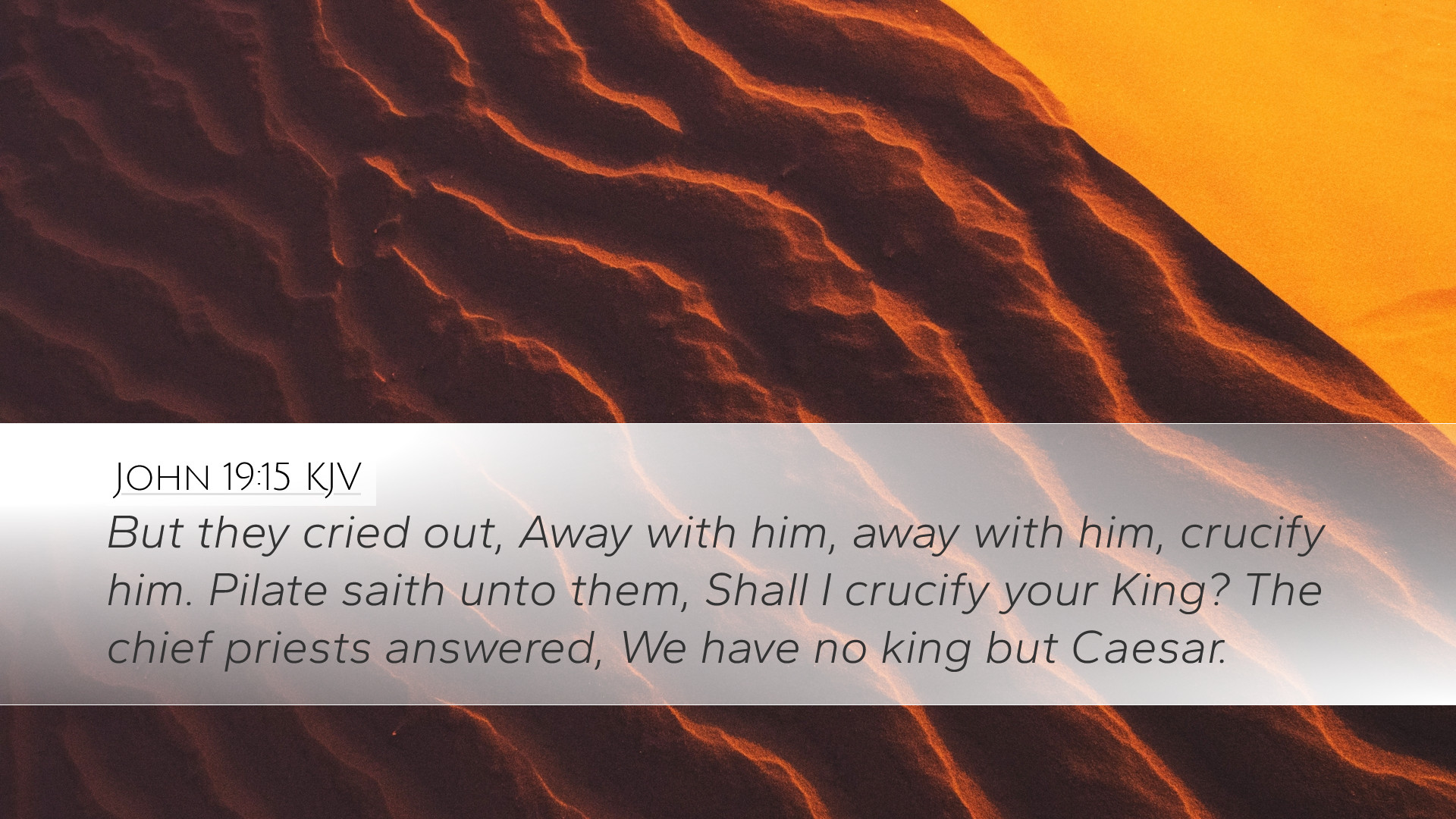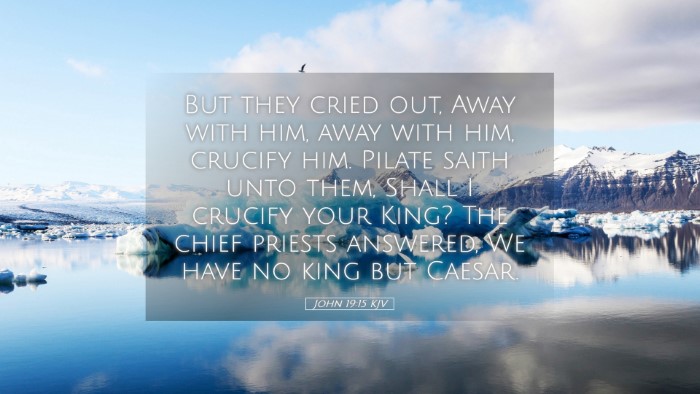Commentary on John 19:15
John 19:15 states: "But they cried out, Away with him, away with him! Crucify him." This verse encapsulates a moment of profound rejection and brutality, which warrants deeper theological reflection.
Contextual Background
The narrative of John 19 occurs during the final hours of Jesus Christ's trial before Pontius Pilate. After a series of interrogations and attempts at vindication, the Jewish leaders vehemently insist on Jesus’ condemnation. The profundity of this rejection, especially against the backdrop of Jesus’ messianic claims and miracles, reveals a stark contrast between expectation and reality.
Insights from Commentators
Matthew Henry's Perspective
Matthew Henry highlights the tragedy of the Jewish leaders’ determination to see Jesus crucified. He notes that their cry, "Away with him!" reflects not just a personal rejection, but a collective denial of the Messiah. Henry emphasizes the spiritual blindness that leads to such vehement hostility towards truth. He writes:
"They preferred a murderer before the Messiah. Pilate, in despair, attempts to release Jesus, but the crowd, stirred by their leaders, demands His death. It shows how far people can be willing to descend amidst their passions."
Albert Barnes' Commentary
Albert Barnes sheds light on the political dynamics at play in this scene. He states that the Jewish authorities recognized that allowing Jesus to continue His ministry posed a threat not only to their religious status but also to the fragile political peace under Roman occupation. Barnes articulates:
"They believed that the claims of Jesus would disturb their national interests. Thus, in sacrificing Him, they aimed to maintain their own power and influence."
Adam Clarke's Analysis
Adam Clarke discusses the emotional and theological implications of this scene. He notes the irony in the crowd’s insistence on crucifying Jesus while erroneously believing they were preserving their faithfulness to God. Clarke states:
"In rejecting Christ, they believed they were upholding the law, yet they were blind to the substance of that law, which pointed towards Him as the fulfillment of all righteousness."
Theological Implications
- The Rejection of Truth: This reaction demonstrates how mankind often rejects divine truth when it conflicts with human desires.
- Societal Dynamics: The influence of religious and political leaders on the masses reminds us of the power of collective will in choosing societal narratives.
- The Prophetic Fulfillment: This moment constitutes a fulfillment of prophecies regarding the suffering Messiah, underlining God's sovereign plan amidst human actions.
- The Contrast of Choices: The choice to substitute Jesus for a criminal illustrates the depths of human depravity and the rejection of the divine in favor of earthly preferences.
Reflections for Pastors and Theologians
This verse invites deep reflection on the nature of crowd psychology and its implications for Christian leadership. Pastors must understand the context of their congregation and society while remaining steadfast in proclaiming truth, even when it is unpopular.
Moreover, theologians are challenged to reflect on the significance of this rejection within the broader narrative of salvation history. It calls for a recognition of the cost of discipleship and the reality that following Christ may sometimes mean standing against the tide of popular sentiment.
Conclusion
John 19:15 serves as a powerful reminder of the tension between divine purpose and human sinfulness. It encapsulates a moment in history that reverberates throughout the ages, encouraging believers to acknowledge the gravity of crucifixion, while also finding hope in the resurrection. As we delve into this passage, let us carry forward the lessons learned from those who stood in opposition to Christ, seeking instead to align our lives with His divine will.


